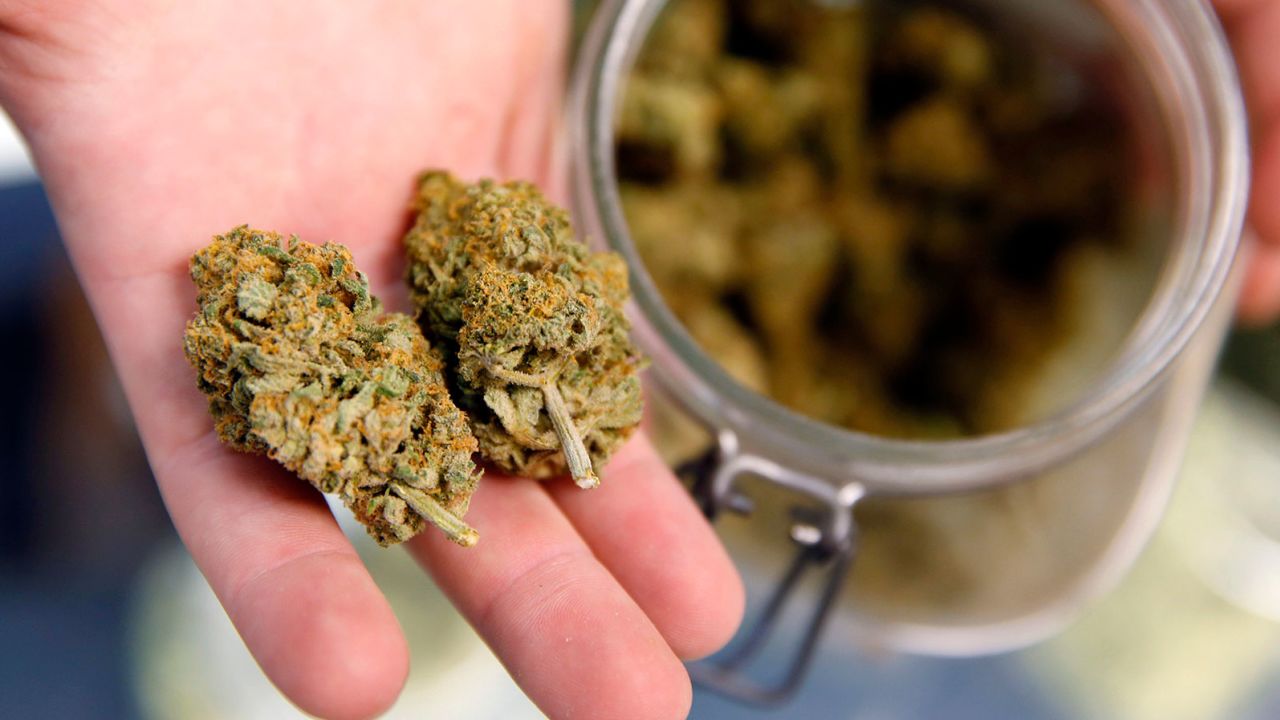If you are pregnant and use any form of cannabis product, consider stopping. That’s the takeaway from a new study that found a significant health impact of marijuana use on fetal development as early as the beginning of pregnancy.
“That’s why these findings are especially important — people can often be well into the first trimester and don’t even know they are pregnant,” said lead author Beth Bailey, professor of psychology and director of population health research at the College of Medicine at Central Michigan University in Mount Pleasant.
“Our study drills down to look very specifically at a specific time point in pregnancy — the first trimester. We found a significant decrease in birth weight of 154 grams. In terms of pounds, it’s about a third of a pound,” she said.
While one-third of a pound may not seem to be much, such slight decreases in weight have been linked to health problems as children grow, Bailey said.
“Low birth weight is one of the strongest predictors of a child’s health and development long-term,” she said. “These kids are more prone to developmental delays, higher rates of ADHD (attention deficit hyperactivity disorder), learning disabilities, and have higher rates of emotional problems.”
If marijuana exposure continued during the rest of the pregnancy, birth weight dropped by another 31 grams (0.07 pound), the study found. In addition, the head circumference of the newborn was reduced if marijuana use continued throughout pregnancy. Smaller head circumference could be a sign the brain didn’t develop properly during pregnancy.
“Even when pregnant people stopped using marijuana by the third trimester, the babies were born with a smaller head circumference of about 1 centimeter (0.4 inch),” Bailey said. “What we are telling women is that it’s not an absolute certainty that your baby’s growth will be impacted if you are using marijuana. But we do know that you are at substantially higher risk for that outcome.”
While reducing levels of marijuana consumption during pregnancy is beneficial, it may not be enough to protect the developing baby, Bailey said, because scientists do not yet have the research data to see whether there is any level of marijuana use that does not cause fetal harm.
The safest recourse? “My advice to women is to avoid using marijuana at all during pregnancy and if possible stop using prior to becoming pregnant,” Bailey said.
Verified use of cannabis
The study, published Tuesday in the journal Frontiers in Pediatrics, used data from medical records of 109 pregnant people who delivered at an obstetrics clinic at Central Michigan’s College of Medicine. That data were compared with the data of 171 people who did not use marijuana and served as the control group.
Pregnant people who used marijuana were significantly younger, more likely to be single and covered by Medicaid, and less likely to have an education beyond high school than those who did not use marijuana.
While the study numbers were small, the research was robust because the use of marijuana was verified via urine tests, said Brianna Moore, an assistant professor of epidemiology at the Colorado School of Public Health in Aurora. She was not involved in the study.
“Urinary THC (tetrahydrocannabinol) testing is more objective than self-report, since pregnant people may not want to state that they are using cannabis,” she said.
According to studies, self-reported cannabis use in pregnancy is around 7%, Moore added. However, a 2019 study that tested umbilical cords for TCH found that cannabis use in pregnancy may be as high as 22.4%.
Many pregnant people may use cannabis to treat pregnancy-related symptoms such as nausea and pain or as a “substitute” for prescription medications like antidepressants, Moore said.

Marijuana use can harm fetal development in the first trimester, a time when many people may not know they are pregnant.
“However, one study suggests that very few pregnant people (0.5%) use cannabis strictly for medical purposes,” Moore said. “There’s work that needs to be done to understand the contextual, social, or individual factors that influence cannabis use in pregnancy.
“That would help identify techniques and tools to limit cannabis use in pregnancy,” she added, “such as mindfulness techniques to cope with stress or ‘triggers,’ and over-the-counter medications for nausea and the like.”
More pregnant people use weed
Use of marijuana during pregnancy is on the rise, Bailey said: “With legalization there seems to be the idea that it must be safe since it’s legal, and so a lot of people continue to use during pregnancy.”
Compounding the problem, studies in the ’90s did not look at specific trimesters and found little overall harm to a fetus from using marijuana, Bailey said. It’s possible some of the older information may be currently distributed on social media.

Using weed during pregnancy linked to psychotic-like behaviors in children, study finds
“Birth weight was just minimally impacted back then and studies showed subtle developmental effects on children long-term,” Bailey said. “However, what we’re seeing with legalization is that people are probably using more heavily, and today we’ve got marijuana strains with stronger THC levels, now that marijuana is commercially grown. We’re seeing very large effects on the fetus in the last 10 years of research.”
The impact can be even worse when negative health behaviors are combined. Prior research has “pretty well established” that smoking cigarettes during pregnancy has a bigger impact on birth weight than exposure to marijuana,” Bailey said.
“But when women combine smoking cigarettes and marijuana, we see an even bigger effect on birth weight than you would get from either of the two alone,” she said.
By Sandee LaMotte, CNN – https://www.cnn.com/2023/05/16/health/marijuana-harm-early-pregnancy-wellness/index.html
